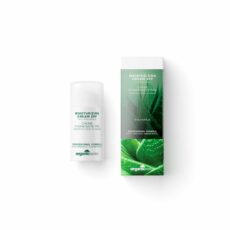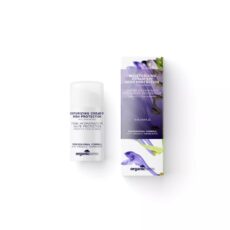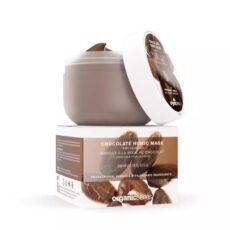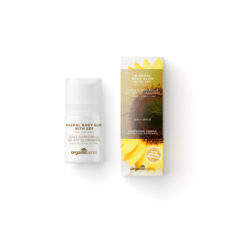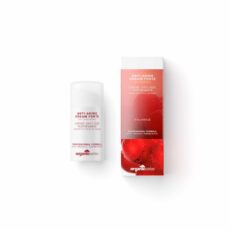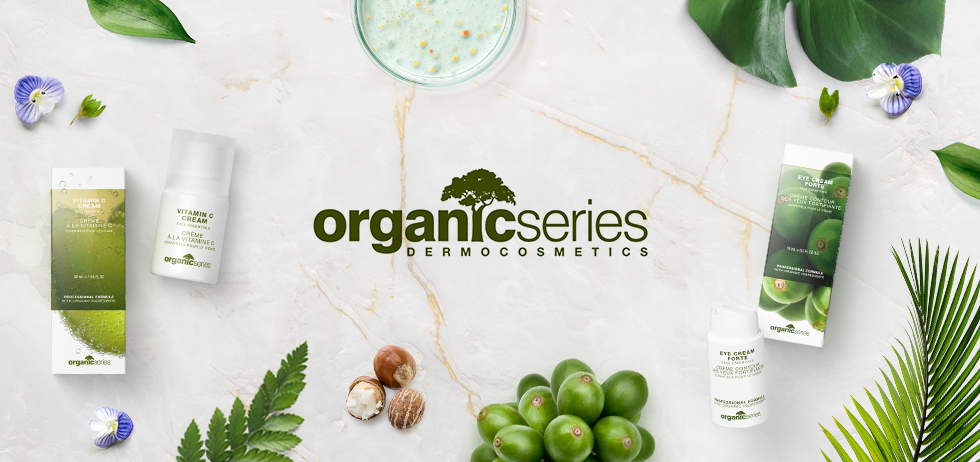Moisturiser or sunscreen first?
Moisturiser or sunscreen first:
As summer approaches, our skincare routines need to adapt to protect and nourish our skin against the increased exposure to sun, heat, and humidity. One of the common questions during this transition is whether to apply moisturizer or sunscreen first. To help you prepare your skin for the summer months, Organic Series offers 10 amazing tips that address this question and more, ensuring your skin stays healthy, hydrated, and protected.
1. Sunscreen Always Comes Last in Skincare Routine
Importance
Applying sunscreen last is crucial for its effectiveness in protecting your skin from harmful UV rays.
Detailed Explanation
- Barrier Function: Sunscreen forms a protective barrier on the skin that blocks UV rays. If applied under moisturizer, this barrier can be disrupted, reducing its effectiveness.
- Absorption: Moisturizers and other skincare products need to be absorbed into the skin. If sunscreen is applied first, it can prevent these products from penetrating the skin properly.
- Consistency: Applying sunscreen last ensures it is evenly spread and provides maximum coverage.
Always apply sunscreen after all other skincare products to maintain its protective benefits.
2. Choose a Lightweight Moisturizer for Summer
Importance
Increased humidity and heat can make heavier moisturizers feel greasy and uncomfortable.
Detailed Explanation
- Hydration Without Heaviness: Lightweight moisturizers, such as gels or water-based creams, provide sufficient hydration without feeling heavy or clogging pores.
- Oil Control: Lightweight moisturizers help balance the skin’s oil production, reducing shine and preventing breakouts.
- Comfort: These formulations absorb quickly and leave a non-greasy finish, making them ideal for hot summer days.
Opt for a lightweight moisturizer to keep your skin hydrated and comfortable throughout the summer.
3. Use Broad-Spectrum Sunscreen
Importance
Broad-spectrum sunscreen protects against both UVA and UVB rays, offering comprehensive sun protection.
Detailed Explanation
- UVA Protection: UVA rays penetrate deeply into the skin, leading to premature aging and long-term damage. Broad-spectrum sunscreen helps prevent these effects.
- UVB Protection: UVB rays cause sunburn and can lead to skin cancer. Broad-spectrum formulas shield the skin from these harmful rays.
- Daily Use: Even on cloudy days or when indoors, UV rays can penetrate windows and clouds, making daily sunscreen application essential.
Ensure your sunscreen is broad-spectrum to protect your skin from all types of UV radiation.
4. Reapply Sunscreen Regularly
Importance
Sunscreen needs to be reapplied to maintain its effectiveness throughout the day.
Detailed Explanation
- Sweat and Water Resistance: Activities like swimming and sweating can reduce sunscreen effectiveness, necessitating reapplication every two hours or immediately after these activities.
- Daily Activities: Even daily activities like walking or driving can expose you to the sun, making regular reapplication necessary.
- Consistent Protection: Reapplying ensures continuous protection against UV rays, preventing sunburn and long-term damage.
Make it a habit to reapply sunscreen every two hours, especially during prolonged sun exposure.
5. Hydrate from Within
Importance
Internal hydration is as important as external hydration for maintaining healthy skin.
Detailed Explanation
- Water Intake: Drinking plenty of water helps keep your skin hydrated and supports overall bodily functions.
- Hydrating Foods: Incorporate hydrating foods like watermelon, cucumbers, and oranges into your diet to boost skin hydration.
- Skin Health: Proper hydration helps maintain skin elasticity, reduces dryness, and enhances the skin’s natural barrier.
Stay hydrated by drinking water and consuming hydrating foods to support your skin from the inside out.
6. Incorporate Antioxidants into Your Skincare Routine
Importance
Antioxidants protect the skin from free radical damage and enhance the effectiveness of sunscreen.
Detailed Explanation
- Free Radical Neutralization: Antioxidants like vitamin C and E neutralize free radicals caused by UV exposure, preventing cellular damage.
- Enhanced Sun Protection: Using antioxidant serums or moisturizers before applying sunscreen can boost your skin’s defense against UV rays.
- Skin Repair: Antioxidants help repair and rejuvenate the skin, reducing signs of aging and improving overall skin health.
Include antioxidant-rich products in your routine for added protection and skin health benefits.
7. Opt for Mineral Sunscreen for Sensitive Skin
Importance
Mineral sunscreens are less likely to irritate sensitive skin compared to chemical sunscreens.
Detailed Explanation
- Physical Blockers: Mineral sunscreens contain zinc oxide or titanium dioxide, which sit on the skin’s surface and reflect UV rays.
- Gentle Formula: These ingredients are less likely to cause irritation or allergic reactions, making them suitable for sensitive skin.
- Immediate Protection: Unlike chemical sunscreens, which need to be absorbed before becoming effective, mineral sunscreens provide immediate protection upon application.
For sensitive skin, choose mineral sunscreens to avoid irritation and ensure effective sun protection.
8. Don’t Forget Lip Protection
Importance
The lips are often overlooked but are highly susceptible to sun damage.
Detailed Explanation
- SPF Lip Balm: Use a lip balm with SPF to protect your lips from UV rays and prevent sunburn.
- Hydration: Look for lip balms that also provide hydration to keep your lips soft and smooth.
- Reapplication: Reapply SPF lip balm regularly, especially after eating or drinking, to maintain protection.
Protect your lips by incorporating an SPF lip balm into your daily routine.
9. Wear Protective Clothing and Accessories
Importance
Physical barriers can provide additional protection against sun exposure.
Detailed Explanation
- Clothing: Wear lightweight, long-sleeved shirts, and pants made of tightly woven fabrics to cover your skin.
- Hats: A wide-brimmed hat can protect your face, neck, and ears from direct sun exposure.
- Sunglasses: UV-protective sunglasses shield your eyes and the delicate skin around them from harmful UV rays.
Complement your skincare routine with protective clothing and accessories for comprehensive sun protection.
10. Adjust Your Routine Based on Activity and Environment
Importance
Tailoring your skincare routine to your activities and environment ensures optimal protection and care.
Detailed Explanation
- Outdoor Activities: If you’re spending extended time outdoors, increase the frequency of sunscreen reapplication and wear protective clothing.
- Humidity and Heat: In humid climates, opt for lightweight, non-comedogenic products to prevent clogged pores.
- Travel: When traveling to different climates, adjust your skincare routine accordingly to address changes in temperature and UV exposure.
Adapt your skincare routine to your lifestyle and environment to maintain healthy, protected skin.
Conclusion
Preparing your skin for the summer involves more than just choosing between moisturizer and sunscreen. By following these 10 amazing tips from Organic Series, you can ensure your skin remains hydrated, protected, and radiant throughout the sunny months. Remember, sunscreen should always be the last step in your skincare routine to provide maximum protection against UV rays. Combine this with proper hydration, antioxidant-rich products, and protective clothing to enjoy a safe and glowing summer.
Moisturiser or sunscreen first – understanding the importance of sun protection
Moisturiser is an essential part of any daily skincare routine, as it provides hydration to the skin and helps to retain moisture. However, incorporating sunscreen into your skincare routine is also important as it helps to shield the skin from UV rays. To best protect your skin, ideally, you should use both, but the question is, do you use moisturiser or sunscreen first?
Here’s a simple seven-step guide that can help you decide what to use first – moisturiser or sunscreen.
1. Determine your skin type: Knowing your skin type is crucial, as it helps you select the best protective product catered to your skin’s needs. For instance, if you have dry skin, a moisturiser will be the best starting point.
2. Apply your morning routine: After cleansing and toning your face, using your serum or any other targeted treatment product would come next in line. If your steps include sunscreen and moisturiser, how do you know which comes first?
3. Apply sunscreen first: If you are going to spend a considerable amount of time in the sun, it is better to apply sunscreen first as it forms a protective layer on your skin that blocks out UV rays.
4. Use moisturiser after sunscreen: After applying sunscreen, give it a few minutes to absorb into your skin before using moisturiser. This is because the lotion might bind to the sunblock, reducing its effectiveness.
5. Consider a combination product: Fortunately, there are moisturisers on the market that contain sun protection ingredients. Hence, if you are short on time or prefer a simpler routine, using a combination product is an ideal option.
6. Re-application of sunscreen: After a few hours in the sun, it’s essential to re-apply sunscreen to maintain optimal protection.
7. Don’t neglect other areas: Ensure you protect other parts of your body from the sun, such as your lips, ears, and hands. Hats and sunglasses work well to protect vulnerable areas on the face.
The debate: moisturiser or sunscreen first?

For those with dry skin, applying moisturizer before sunscreen might seem like the logical choice. Dry skin tends to be more prone to wrinkles and ageing, so a moisturizer can help hydrate and restore the skin’s natural moisture barrier. On the other hand, if you have oily skin, applying sunscreen first can help reduce oiliness and prevent pores from clogging, which can lead to acne.
There are some other important factors to consider when deciding whether to apply moisturizer or sunscreen first. The quality of the products used is one of the most critical factors that can impact how effective they are at protecting the skin from the sun’s harmful rays. If the sunscreen or moisturizer you’re using is of poor quality, it might not provide optimal sun protection, regardless of the order of application.
Another factor to consider is the environment. If you’re planning to spend an extended period outdoors, especially during peak UV hours, it’s essential to ensure that you apply sunscreen first. Sunscreens have been designed to protect the skin from UV radiation, which can cause skin damage and increase the risk of skin cancer. Applying sunscreen first also allows the product to fully absorb into the skin, making it more effective.
One of the best ideas, however, is to find a moisturising sunscreen – this way you don’t have to wonder, if you should use moisturiser or sunscreen first – your skin will be ideally moisturized and protected at the same time! This is what Organic Series is all about – our series of moisturising sunscreens is the best choice for your skin!
Expert recommendation
Organic Series Moisturiser or Sunscreen first SPF20

More inspiration
For more interesting tips on whether to use moisturiser or sunscreen first, follow Organic Series UK on instagram and facebook for more inspiration, expert tips and special discount codes!
Moisturiser or Sunscreen First By Organic Series
-
Face Moisturiser with Sunscreen SPF20 | Moisturising Cream SPF20 By Organic Series | 15ml, 50ml, 200ml
From £ 12.00Rated 4.89 out of 509 reviews -
Face Moisturiser with Sunscreen SPF40 | Moisturising Cream SPF High Protection By Organic Series | 15ml, 50ml
From £ 12.00Rated 4.67 out of 506 reviews -
Humic Acid Mask | Chocolate Humic Mask By Organic Series | 200 ml, 500 ml
From £ 29.00Rated 5.00 out of 501 review -

Maria
Cosmetic Chemist
Maria
All Author Posts

